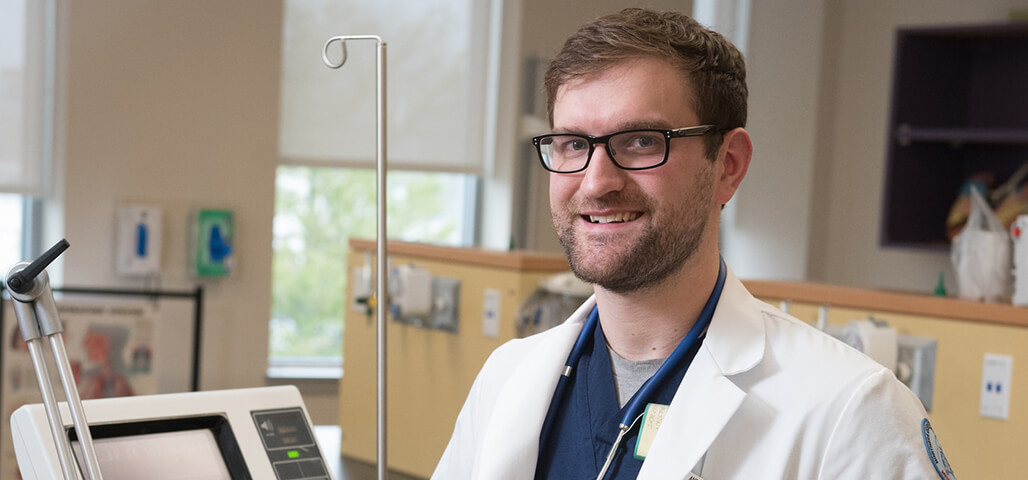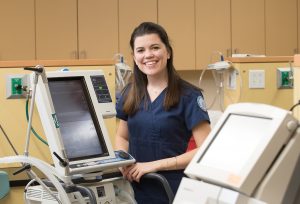Respiratory Care Associate Degree

Respiratory therapists work with doctors and nurses to diagnose and treat lung and breathing disorders. NECC’s Respiratory Care Associate Degree Program can prepare you for this rewarding career to work in hospitals, physician’s offices, nursing care facilities, home health agencies, and more.
Why Choose NECC?
In addition to the emotional rewards that come from helping people, job prospects for respiratory therapists are strong. The Respiratory Care Associate Degree Program at NECC is accredited by the Commission on Accreditation for Respiratory Care (Program #200183) and will prepare you to sit for the credentialing exams. CoARC accredits respiratory therapy education programs in the United States. To achieve this end, it utilizes an ‘outcomes based’ process. Programmatic outcomes are performance indicators that reflect the extent to which the educational goals of the program are achieved and by which program effectiveness is documented. With this program you will:
- Learn about human anatomy and physiology, respiratory function, and critical care
- Gain hands on experience with technology tools and respiratory equipment
- Benefit from supervised experiences in clinical care settings
- Prepare for a career that is emotionally and financially rewarding
Because of NECC
You will be prepared to take the National Board of Respiratory Care’s credentialing exams (CRT and RRT) and apply for state licensure as a respiratory therapist, opening up career opportunities in a variety of health care settings. Upon completion of the program you can:
- Work in acute care settings such as hospitals, or subacute care settings such as rehabilitation facilities, nursing homes, and outpatient clinics
- Take advantage of transfer agreements to continue your education and earn your bachelor’s degree in respiratory care or a related field, saving thousands of dollars on the cost of a four-year degree.
Quote:
I loved my program, and I loved the instructors and all the support NECC provides. NECC gives you a great opportunity to start your career”
Heather Bompane, Respiratory Care
Courses and Requirements
Skip Required Courses and Program NotesProgram Pathway
A pathway is the most efficient sequence of courses semester-to-semester recommended for students to complete their degree. View the suggested pathway for the Respiratory Care associate degree program.



